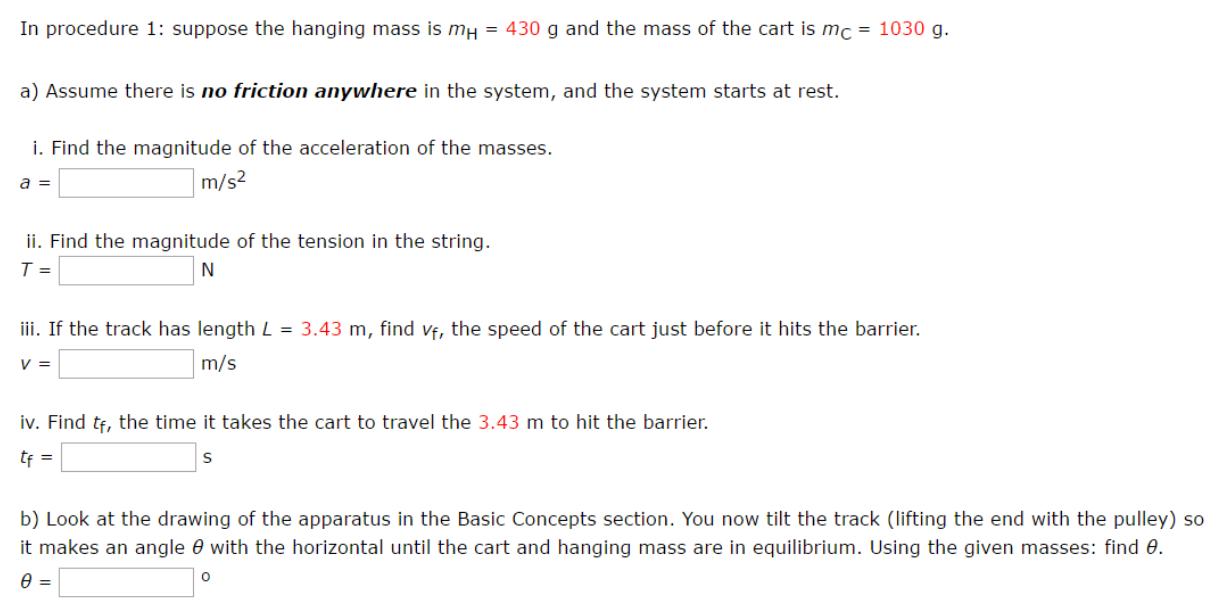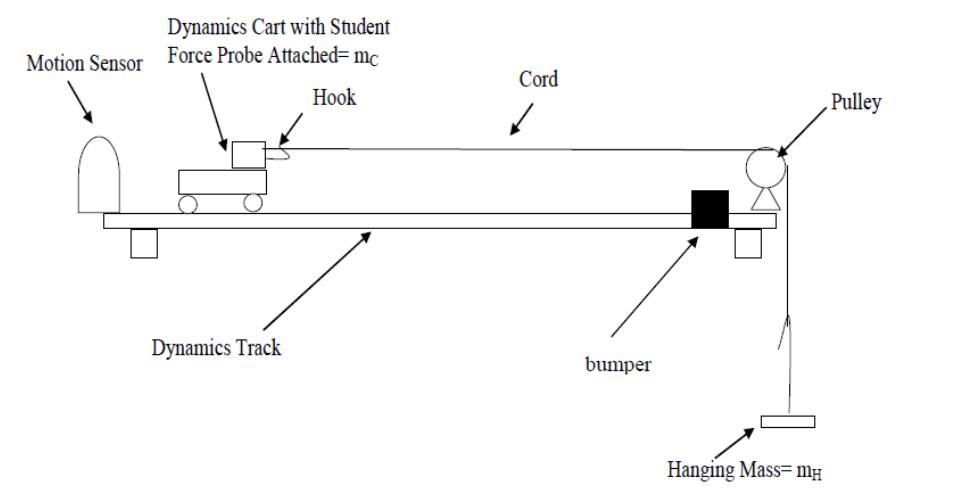Question
In procedure 1: suppose the hanging mass is m = 430 g and the mass of the cart is mc = 1030 g. a)


In procedure 1: suppose the hanging mass is m = 430 g and the mass of the cart is mc = 1030 g. a) Assume there is no friction anywhere in the system, and the system starts at rest. I. Find the magnitude of the acceleration of the masses. a = m/s ii. Find the magnitude of the tension in the string. T = N iii. If the track has length L = 3.43 m, find vf, the speed of the cart just before it hits the barrier. v = m/s iv. Find tf, the time it takes the cart to travel the 3.43 m to hit the barrier. tf S b) Look at the drawing of the apparatus in the Basic Concepts section. You now tilt the track (lifting the end with the pulley) so it makes an angle with the horizontal until the cart and hanging mass are in equilibrium. Using the given masses: find 6. 0 = Motion Sensor Dynamics Cart with Student Force Probe Attached= mc Hook Cord Pulley Dynamics Track bumper Hanging Mass= mH
Step by Step Solution
There are 3 Steps involved in it
Step: 1

Get Instant Access to Expert-Tailored Solutions
See step-by-step solutions with expert insights and AI powered tools for academic success
Step: 2

Step: 3

Ace Your Homework with AI
Get the answers you need in no time with our AI-driven, step-by-step assistance
Get StartedRecommended Textbook for
Microeconomics An Intuitive Approach with Calculus
Authors: Thomas Nechyba
1st edition
538453257, 978-0538453257
Students also viewed these Physics questions
Question
Answered: 1 week ago
Question
Answered: 1 week ago
Question
Answered: 1 week ago
Question
Answered: 1 week ago
Question
Answered: 1 week ago
Question
Answered: 1 week ago
Question
Answered: 1 week ago
Question
Answered: 1 week ago
Question
Answered: 1 week ago
Question
Answered: 1 week ago
Question
Answered: 1 week ago
Question
Answered: 1 week ago
Question
Answered: 1 week ago
Question
Answered: 1 week ago
Question
Answered: 1 week ago
Question
Answered: 1 week ago
Question
Answered: 1 week ago
Question
Answered: 1 week ago
Question
Answered: 1 week ago
Question
Answered: 1 week ago
Question
Answered: 1 week ago
View Answer in SolutionInn App



